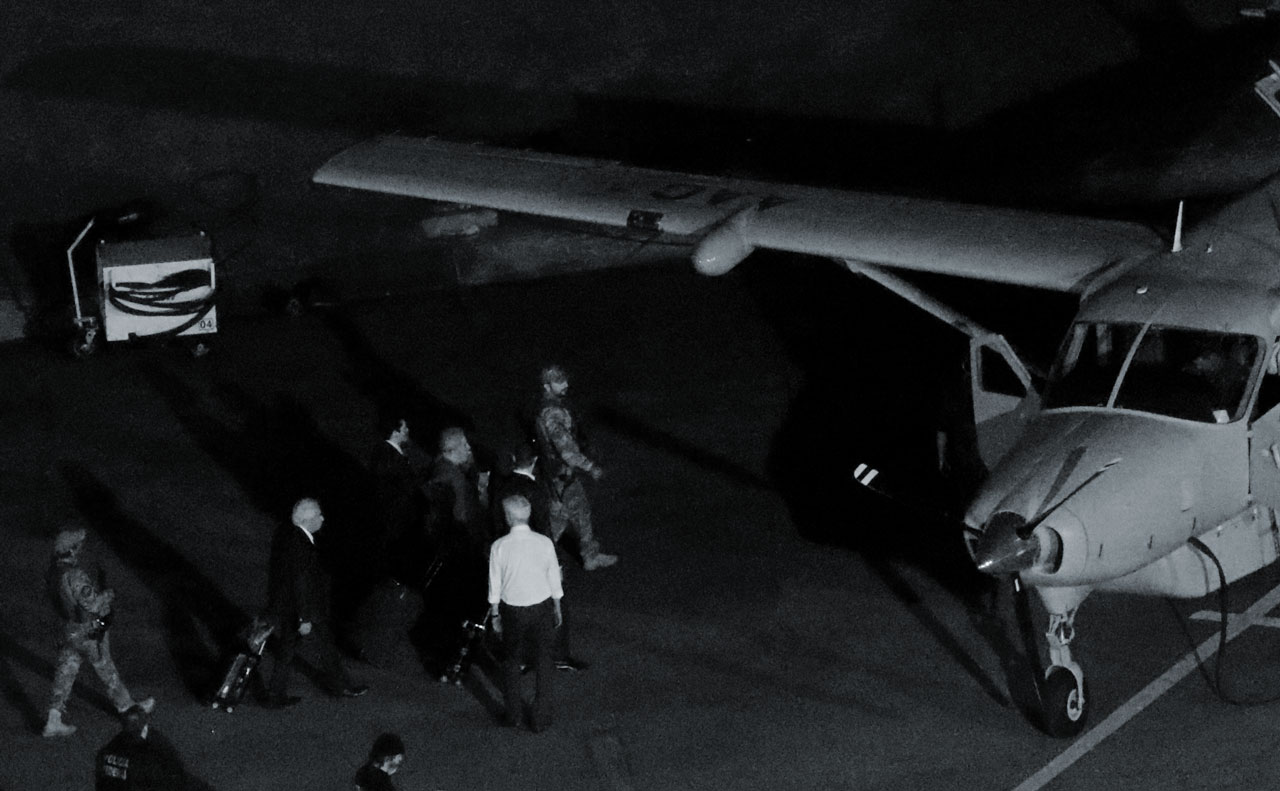On Saturday night a video started circulating around the social media of an airplane control panel with on-board conversation in which one of the passengers, presumably a Federal Police agent, threatened to “throw this garbage out the window” and to “get rid of him and never come back”. Today the Brazilian Airforce confirmed that the conversation took place during Lula’s flight to Curitiba, where he is currently being held without the constitutional right to habeas corpus, on flimsy charges that he committed “undetermined acts”, with no material evidence.
The threat is reminiscent of the death flights used to kill thousands of political prisoners as part of Operation Condor during the period that the US Government supported neofascist dictatorships in countries like Brazil, Argentina, Chile and Paraguay.
As worries grow that Lula will be poisoned inside of his jail cell in the Federal Police headquarters in Curitiba, thousands of people are pouring into the city from across the country to stand vigil in front of the building where he is being held. On Saturday night, Governor Beto Richa’s military police opened fire on a crowd of peaceful protesters full of women and children in front of the Federal Police headquarters, hospitalizing ten. Lula’s Prosecutor and Judge Sergio Moro has been accused of conflict of interest due to his wife Rosangela’s collaboration with the Beto Richa administration. Rosangela Moro, who’s law firm has represented several of the top defendents in Lava Jato plea bargain cases, provided legal council to Richa’s Vice Governor Flavio Arns for years.
As northern media outlets continue to routinely downplay the threat of return to dictatorship in Brazil, the Brazilian Military has been gradually increasing its power. With no end to the military occupation of Rio de Janeiro state in sight, president Michel Temer, who served as a public prosecutor and state security chief in São Paulo during the dictatorship, has reestablished the Presidential Security Cabinet and given it power over 16 government agencies, including ABIN, the Civil Intelligence Bureau, and the Federal Police. General Sergio Etchegoyen, security cabinet chief, is the son of a top adviser to General Medici during the most repressive era of the Brazilian Military Dictatorship, and grandson of General Alcides Etchegoyen, who was a key player in the coup against Getulio Vargas in 1954, which resulted in the president’s suicide.
Journalists and historians have traditionally downplayed human rights violations during the Brazilian Military Dictatorship, comparing the official death toll of union members and political prisoners, in the hundreds, favorably to that of countries like Argentina. However the Brazilian body count only refers to members of the middle class. For example, the Brazilian government did not classify massacres of peasants, Afro-Brazilians and indigenous tribes as “political assassinations”. When during highway construction in the Amazon region, the Brazilian army machine gunned down 2000 members of the Waimiri-Atroari indigenous tribe in 1967, the deaths were not classified as political killings.
Unlike other South American nations like Argentina, which arrested dozens of former military officers for torture and murder when its dictatorship came to a close, the Brazilian government conceded full amnesty to its military. As of 2015, 27% of the Brazilian Senate had held public office during the dictatorship. Before his politically motivated arrest by the US Department of Justice and FBI supported prosecuting team of Sergio Moro, Lula was the leading presidential candidate in the 2018 elections. His arrest pushes former Military Special Forces Captain, Jair Bolsonaro, a vocal advocate of torture and summary executions of dissidents, to the position of presidential front runner.
[qpp]

